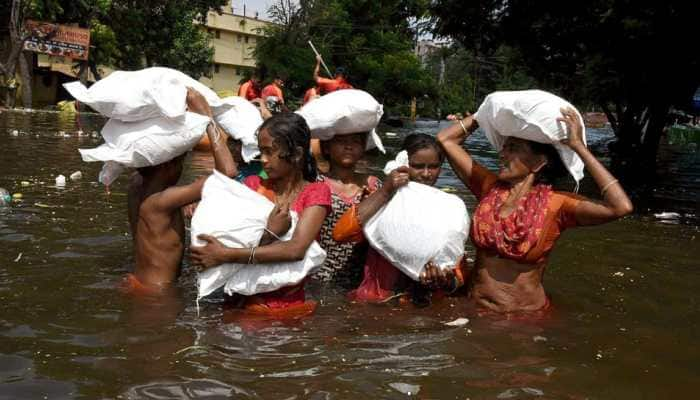Netherlands imposes 'painful' lockdown amid Omicron surge, streets deserted ahead of Christmas holidays
Prime Minister Mark Rutte had announced the sudden shut-down on Saturday evening, ordering the closure of all but the most essential stores, as well as restaurants, hairdressers, gyms, museums and other public places from Sunday until at least January 14.
Trending Photos
)
LONDON: Shopping streets in the Netherlands were closed and people’s Christmas plans were in disarray as the country began a lockdown from Sunday aimed at limiting an expected COVID-19 surge.
Prime Minister Mark Rutte had announced the sudden shut-down on Saturday evening, ordering the closure of all but the most essential stores, as well as restaurants, hairdressers, gyms, museums and other public places from Sunday until at least January 14.
Hospitality workers demanded compensation for lost income in the holiday season, while gym owners stressed the importance of exercise during a health crisis.
“Closing all bars and restaurants in such an important month is incredibly painful and dramatic. We need compensation and an exit strategy”, the Dutch association for hospitality services said.
The spread of the Omicron variant has triggered the possibility of more COVID-19 restrictions over the Christmas and New Year period in several European countries, especially the worst-hit like the United Kingdom.
In the United States, White House medical adviser Anthony Fauci urged people travelling over the holidays to get booster shots and always wear masks in crowded public spaces.
He described Omicron as "raging through the world," and said travelling will increase the risk of infection even among vaccinated people.
Omicron, a very contagious variant first detected last month in southern Africa and Hong Kong, has raced around the globe and been reported in 89 countries, the World Health Organization said on Saturday.
The number of Omicron cases is doubling in 1.5 to 3 days in areas with community transmission, the WHO said, noting that much is still not known about the variant, including the severity of the illness it causes.
While the Netherlands took the plunge and shut down much of public life to prevent its healthcare system from being overwhelmed by an expected surge in cases, several other European governments are considering more curbs - at a time when people are normally spending money on shopping, entertainment and travel.
Britain reported a surge in cases of Omicron on Saturday, with 25,000 recorded so far. Government advisors said this could be the tip of the iceberg and health minister Sajid Javid declined on Sunday to rule out the chance of further COVID-19 restrictions before Christmas.
Javid said the government was taking the "sobering" advice of its scientists seriously, was watching the data on an "almost hourly basis" and would balance that against the broader impact of restrictions on areas such as businesses and education.
Prime Minister Boris Johnson is reeling after a series of scandals and missteps, and more than 100 of his own Conservative lawmakers this week voted against the government`s latest measures to tackle COVID-19.
Javid said Johnson was not too politically weak to bring in further curbs if necessary. In Italy, the government is considering new measures to avoid a surge in infections during the holiday period, local newspapers reported on Sunday.
After holding a meeting with ministers on Dec. 23, Prime Minister Mario Draghi could mandate that people who have been vaccinated also show a negative test to access crowded places, including discos and stadiums, daily Corriere Della Sera reported.
Stay informed on all the latest news, real-time breaking news updates, and follow all the important headlines in india news and world News on Zee News.
Live Tv







)
)
)
)
)
)
)
)
)
)
